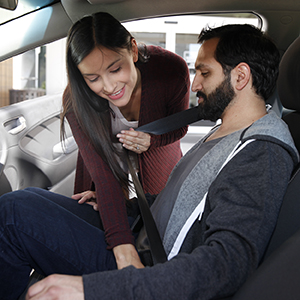Preparing for Back Surgery
Plan ahead for both your surgery and recovery. Be sure to follow any instructions you are given. And talk to your healthcare provider if you have questions about surgery or how the procedure will be done.
Planning ahead
-
Stop smoking. Smoking or using any other nicotine product makes it harder for bone and soft tissues to heal. Ask your healthcare provider if you need help quitting.
-
If you have diabetes, make sure that your blood sugar is well-controlled to help your wounds heal well.
-
Move household items you’ll need after surgery. Place them between hip and shoulder level. This keeps you from needing to lift or bend.
-
Arrange for rides. You may not be able to drive for a week or more after surgery. You may also need help with various chores, meals, and daily activities.
-
Get a pair of slip-on shoes with closed backs. That way, you don’t have to bend to put on shoes.
-
Talk with your healthcare provider about storing your own blood for surgery. Rest assured that all donated blood is tested for diseases like HIV and hepatitis.
Before surgery
 |
| You will need an adult friend or family member to drive you home. |
-
Tell your surgeon about all of the prescription medicines, over-the-counter medicines, herbs, and supplements you take as well as your medical and surgical history.
-
Your surgeon may have you stop taking aspirin and ibuprofen 7 days before surgery. Ask if you should stop taking other medicines, herbal remedies, or supplements as well. If you are taking blood thinners, discuss this with your healthcare provider.
-
Arrange for an adult family member or friend to drive you home.
-
Follow any directions you are given for taking medicines and for not eating or drinking before surgery.
-
Make sure that you have all of your post-operative medicines by the time you get home.
The day of surgery
Arrive at the hospital on time. Before surgery, your blood pressure, temperature, and other vital signs will be taken and you will talk with the anesthesiologist. You’ll be given an IV (intravenous) line to provide fluids. You may have a bladder catheter to help with urination. You may also get medicine to help you relax. Just before surgery, you’ll be given medicine to prevent pain (anesthesia). Local or regional anesthesia numbs just the surgical area. General anesthesia lets you sleep during the operation. After surgery, you will move from the operating room to the recovery room to be monitored as you wake up from anesthesia. After you are awake and stable, you will be moved to your hospital room.
Online Medical Reviewer:
Anne Fetterman RN BSN
Online Medical Reviewer:
Heather M Trevino BSN RNC
Online Medical Reviewer:
Mahammad Juber MD
Date Last Reviewed:
11/1/2021
© 2000-2024 The StayWell Company, LLC. All rights reserved. This information is not intended as a substitute for professional medical care. Always follow your healthcare professional's instructions.